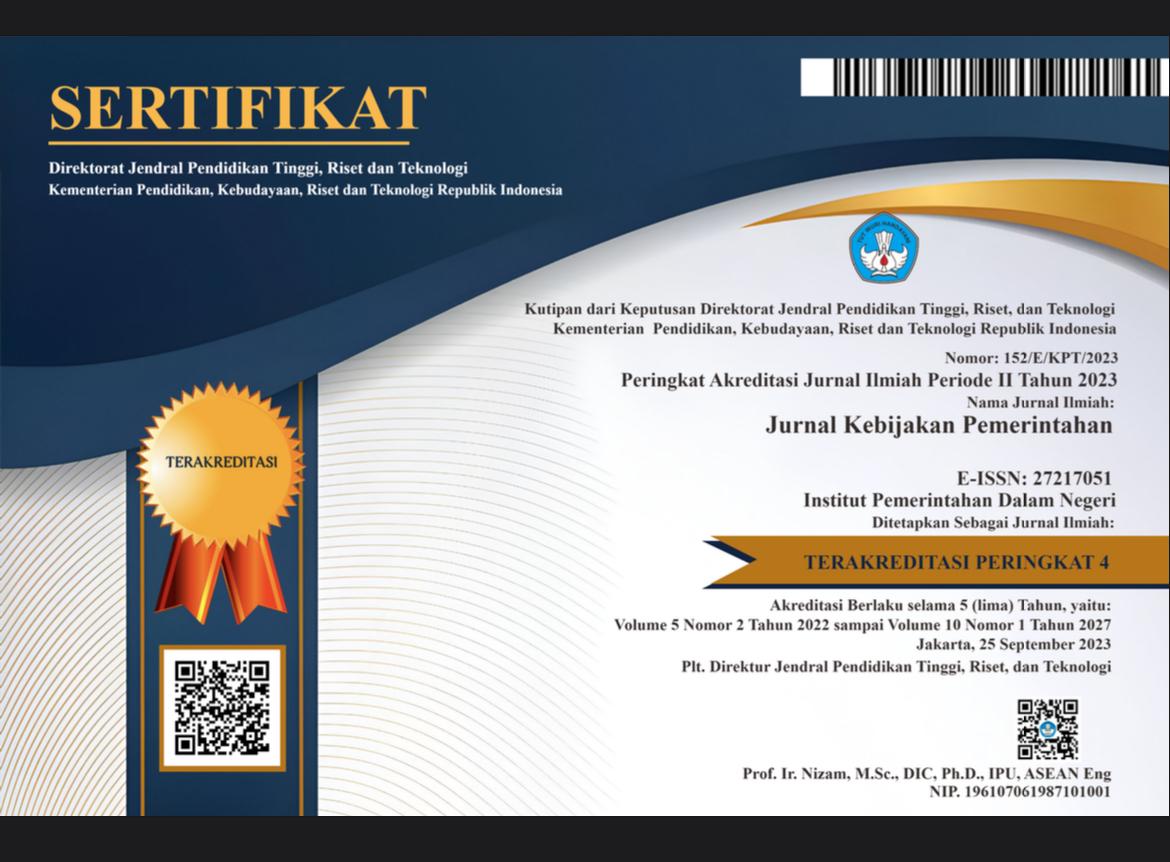DYNAMICS OF REGIONAL EXPANSION POLICY THROUGH THE LENS OF POLICY INNOVATION: BALANCING REGIONAL READINESS AND EQUITABLE DEVELOPMENT
DOI:
https://doi.org/10.33701/jkp.v8i1.5412Abstract
Regional expansion encounters obstacles, such as constrained economic capacity, administrative difficulties, and social disputes that frequently impede the attainment of these objectives. Data indicates that numerous New Autonomous Regions (DOB) do not attain financial autonomy and fail to deliver adequate public services. This essay seeks to evaluate the dynamics of regional expansion policies through the lens of policy innovation by assessing regional preparedness and equitable development. The employed methodology is a literature review. Regional expansion must be executed through a comprehensive method that encompasses meticulous planning, adequate budget allocation, and enhanced human resource capabilities. Innovations in public policy, including participatory governance and community engagement, are essential techniques to address issues and enhance the beneficial effects of policies. Consequently, regional growth programs necessitate rigorous assessment and oversight to guarantee their advantages for equitable development and community well-being.
Keywords: regional expansion, public policy, New Autonomous Region, innovation policy, equitable development
Downloads
Downloads
Published
How to Cite
Issue
Section
License
Copyright (c) 2025 Iin Piani, Muslih Faozanudin

This work is licensed under a Creative Commons Attribution-ShareAlike 4.0 International License.
Authors who publish with this journal agree to the following terms:
- Authors retain copyright and grant the journal right of first publication with the work simultaneously licensed under a Attribution-ShareAlike 4.0 International (CC BY-SA 4.0) License that allows others to share the work with an acknowledgment of the work's authorship and initial publication in this journal.
- Authors are able to enter into separate, additional contractual arrangements for the non-exclusive distribution of the journal's published version of the work (e.g., post it to an institutional repository or publish it in a book), with an acknowledgment of its initial publication in this journal.
- Authors are permitted and encouraged to post their work online (e.g., in institutional repositories or on their website) prior to and during the submission process, as it can lead to productive exchanges, as well as earlier and greater citation of published work (See The Effect of Open Access).








